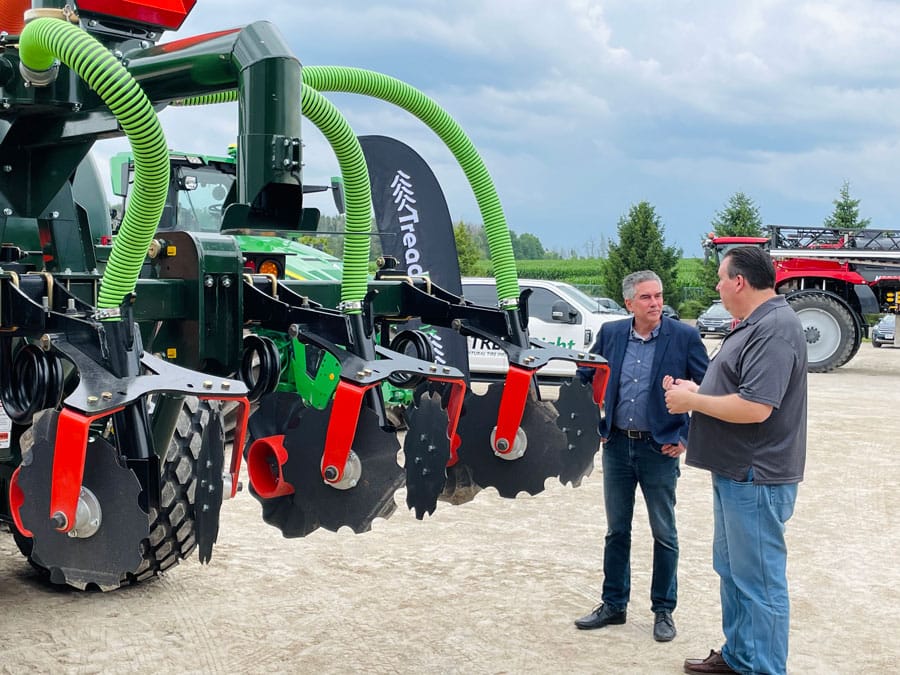ELORA – The Government of Canada has announced an agricultural climate solution living lab project is coming soon to Ontario.
The living lab will develop and test beneficial management practices on up to 50 farms across Ontario.
The beneficial management practices implemented and tested will include:
– livestock and cropping systems;
– nitrogen use;
– landscape management;
– manure storage; and
– grazing management.
Kitchener-Conestoga MP Tim Louis announced the upcoming living lab initiative while attending an event hosted by the Ontario Soil and Crop Improvement Association (OSCIA) at the Grand River Agricultural Society on July 20.
“Led by the OSCIA, this living lab project represents an investment of up to $9.2 million over five years from the federal government under the Agricultural Climate Solutions (ACS) – Living Labs program,” states a press release from Agriculture and Agri-Food Canada (AAFC).
The purpose of the living labs is to accelerate the agricultural sector’s response to climate change by connecting producers and scientists to co-develop, test and evaluate management practices on farms.
“The OSCIA will also encourage knowledge transfer and exchange between local producers, producer associations, federal and provincial researchers, Indigenous groups, and other sector stakeholders,” the release states.
The Living Lab initiative is a Canadian model that launched in 2019 and has received international acclaim and inspired similar projects across the globe.
The upcoming local project will be one of 14 Agricultural Solutions Living Labs programs in Canada. At least one of the living labs projects will be located in each province. Each project involves many sites and partners working together as a living lab.
“Ontario farmers have a proud tradition of agricultural innovation,” Louis states in the press release.
“This collaboration will meet producer’s needs while contributing to Canada’s net zero GHG emission goals. These innovations will continue to drive our economy while protecting our farms for future generations.”
OSCIA president Steve Sickle states “this living lab will create bridges between academia, industry and government with a focus on improving innovation.
“Working together they can come up with practical solutions to mitigate climate change.
“This integrated approach to agricultural systems that includes cropland, livestock, and broader farm landscapes is crucial if we are to make progress in addressing the climate change challenge.”
The sites for the living lab have not yet been determined, but AAFC spokesperson Shanna Stevens said there is a “very good possibility” atleast one will be in Wellington County.




